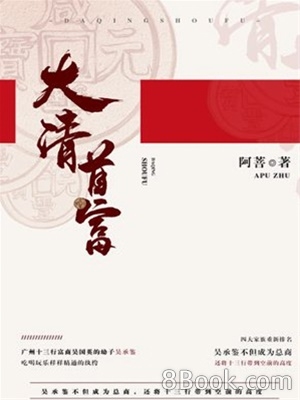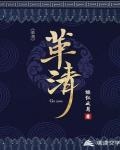Volume 4 Chapter 63: Attack and Defense
At the end of February, when spring ploughing was almost over, war suddenly broke out.
The rear troops of the imperial camp, which had rested for more than half a month but had not left the front line, were the first to move.
Under Wu Jie's command, the Imperial Camp rear army deployed at least 20,000 soldiers in the intersection of the An'an Army and the northern part of Qingzhou, which is the northwest side of Yan'an, the most sensitive Hengshan front line of the Jin Kingdom, the Western Xia, and the Song Dynasty. Once deployed, the troops were divided into two groups, one along the Luo River to the southeast, that is, to the place where Wanyan Huonu in Yan'an Prefecture was; the other to the northwest, that is, the Dingbian Army area that was captured by the Western Xia during the Jingkang period.
The scale of the war was definitely a major war before the Jingkang Incident, but at this time, it was neither big nor small. The battle was destined to be a typical battle for castles, mainly for the control of the castles on the Hengshan front line between the Song Dynasty and the Western Xia Dynasty. It would not cause any major waves in a short period of time, nor would it produce any particularly shocking results.
But it still shocked everyone.
It goes without saying that the Song Dynasty and the Jin Dynasty were warring hostile countries. The hatred between the two sides was deeper than the sea and higher than the mountains, and the war had never officially stopped for a day.
Although the Song Dynasty and the Western Xia often reached nominal peace, their hatred was deeper than the sea and higher than the mountains because of the Hundred Years' War. Even the most anti-war senior civil servants in the Song Dynasty, except for a very small number of people who were tired of the war and were willing to accept the Western Xia, most people regarded the Western Xia as "rebellious" from the beginning, that is, "illegal self-independence". Everyone believed from the bottom of their hearts that the birth of this regime was illegal.
Therefore, regardless of whether it was the parrot noodles or the clear distinction, or "I have tolerated you for a long time", and the fact that it would be impossible to obtain the reserve of war horses to cross the river and fight without fighting Xixia... In short, this war with Xixia was essentially the kind that no one could say anything about.
So, it wasn't the outbreak of war itself that shocked everyone.
So what was the off-field significance of Wu Jie's offensive? The answer was to take the initiative to attack the regular troops of the Jurchens and the Tanguts, the regular armies of the two most powerful enemies of the Song Dynasty.
This year was the sixth year of Jianyan, 1132 AD, and the war began seven years earlier in 1125.
In the first three years of the war
The Song Dynasty court at that time was a small court in exile. It did not dare to go to Hebei, nor did it dare to stay in the Central Plains. The most debated issue among the prime ministers and important officials was whether to go to Chang'an, Nanyang, or Yangzhou as a place to stay.
At that time, the Song Dynasty was in a state where Hebei and Hedong were basically occupied, and the Central Plains, Guanzhong, and Jingdong were completely exposed to the Jin army. The common people flocked to the south, and the officials abandoned their lands upon hearing the news. The area north of the Huai River was basically in a state of anarchy, and from south to north, there were soldiers and bandits everywhere.
The Song army at that time was a group of defeated soldiers, a few big and small cats and dogs, and the highest-ranking soldier was actually a person like Liu Guangshi. Even Han Shizhong, who was recognized as "loyal and brave", could not restrain his subordinates from mutinying and rioting.
Everything that happened at that time is still vivid in my mind.
And now, Zhao Song actually launched an attack, and launched an attack on the regular troops of the Jurchens and Western Xia at the same time.
Some things are like this... Even though everyone is mentally prepared, even though most people know that it may not necessarily produce any obvious results, and even quite a few people know that such a thing may just be a feint or some kind of preparatory action, they still can't help but feel excited, emotional, and disappointed.
Because this is the main text of history and the process of history.
On top of countless deaths, survivals, flames, iron currents, nature, and human nature, history will eventually ironically choose to use such events as nodes to record them without emotion... After seven years of resistance and five years of hard work, the Zhao Song Dynasty finally took the step of counterattack in the spring of the sixth year of Jianyan.
Then, as time passes, no one will remember all those once lively faces, and no one will remember all the swordplay that once shone in the era. Only some people and some things, like this counterattack, are recorded without emotion.
After Wu Jie took action, the rest of the Song army also took action.
Han Shizhong's troops re-entered Tongzhou, and a part of them advanced into Danzhou, ensuring pressure on the other side of Yan'an. At the same time, they directly threatened the passage of the Jin army from Daning area across the river to support Yan'an. This made the Jin army in Yan'an truly feel the danger of being surrounded and annihilated.
The pressure from the Western Xia side was obviously greater. Yue Fei's troops, Qu Duan's troops, Wang De's troops, tens of thousands of elite Song troops appeared in large numbers on Jingyuan Road, with both cavalry and infantry. Then, with Zhenrong Army (later Guyuan) as their base camp, they began to launch a fierce attack on Huaide Army, commonly known as Pingxia City, and the northern section of Xi'an Prefecture, which had been captured by the Western Xia before.
Pingxia City is located in a very prominent strategic position. It was built during the reign of Emperor Zhezong by concentrating the manpower and material resources of the entire Guanzhong area. It took 23 days to build it. As soon as it was completed, it caused a great shock to Western Xia... because this city and the surrounding supporting forts directly controlled the upper reaches of Hulu River, and Hulu River crossed Douling Mountain and went directly to the Yellow River.
When you reach the river mouth, it is actually only 120 miles away from the core Xingling area of Western Xia (Ningxia Plain).
There was a reason why Li Qianshun’s mother Xiao Liang chose this place for her second expedition.
Yue Fei, Wang De, and Qu Duan were obviously elite troops, and most of their generals and soldiers were locals who could adapt to the battlefield right away. At the same time, the proportion of cavalry was quite high, and they were aggressive as soon as they started fighting. Under the fierce attack of these Song armies, the Hulu River Basin, which was called Wei Ru River by the Xixia people, quickly collapsed the surrounding defense line, and the fortress was quickly divided and surrounded. It can be imagined that if large-scale reinforcements could not be quickly dispatched, then Li Qianshun's efforts after Jingkang would be completely in vain.
This made Li Qianshun's situation even more difficult as he was already in a difficult situation due to the sudden outbreak of war.
Having been the ruler of Western Xia for nearly fifty years, he certainly knew the importance of Pingxia City. He also knew that if Pingxia City, which was taken with great difficulty during the Jingkang Rebellion, was recaptured by the Song army, Western Xia would never have peace. But he did not dare to easily withdraw troops to fight... Because in early March when the Song army was attacking and advancing on all fronts, a piece of accurate news repeatedly received from captives and small tribes in the border areas was that the dragon flag of the Zhao Song government moved north again, but it went directly into the northernmost city of Fangzhou.
Fangzhou City is of course a strategic point, as can be seen from the previous achievements of Wu Jie here, and it is natural for the Song army to deploy troops here. However, there is no need for the dragon flag of the Zhao Song officialdom to just deploy backup.
It is obvious that the Zhao Song government wanted to directly command the troops of Han Shizhong and Wu Jie to fight against the eastern battlefield of Yan'an-Hengshan.
The appearance of the Emperor of the Song Dynasty less than a hundred miles away from the front line was commonplace , but it was still a great shock to the Xixia people, to the small Dangxiang tribes in Hengshan, and to the people in the occupied areas of northern Shaanxi.
Many small Dangxiang tribes have repeatedly changed their ways. Although they still consider themselves to be Xixia people most of the time, after hundreds of years of influence, they still know who the emperor of the Song Dynasty is, and they have a sense of fear in their bones.
Therefore, the shock and pressure brought by the sentence that the emperor of the Song Dynasty was in Fangzhou directly caused panic in the Hengshan area. Many small Dangxiang tribes inside and outside Hengshan were shaken, and there were frequent riots and defections by the people in the occupied areas of northern Shaanxi.
For both Yue Fei and Wu Jie, the offensive became obviously smoother.
Under such
After only a few days of fighting, the experienced Xixia ruler was fully aware of a reality: the Song army of today is by no means the Song army of the past, and the Song Dynasty of today is by no means the Song Dynasty of the past.
Expecting Xixia to form a strategic balance with the Song Dynasty on its own was wishful thinking from the beginning.
In the midst of agony, Li Qianshun's only hope was the Jurchens. Letters asking for help began to arrive one after another, sent from Xingqing Prefecture at the fastest speed and delivered to the Jin army-occupied area from the rear of Hengshan. Huo Nu, Wuzhu, and Eluguan were all able to get a share of the credit.
Daning City is the main passage from the Jin army's hinterland east of the Yellow River to Yan'an.
This is because the Xinshui River flowing through here is only a dozen miles away from the mouth of the Yellow River on the opposite bank of the Yanhe River, and the mouth of the Yanhe River is downstream, making the logistics transfer from east to west very convenient.
Therefore, Wanyan Wushu, the fourth prince of the Jin Dynasty who came to Yan'an, regarded this place as his headquarters very early on, and almost successfully divided and disintegrated the Huonu Group here.
Now, in early March, after the full-scale outbreak of the war, the first letter for help arrived here, with countless horses killed. The King of Wei of the Jin Dynasty, who actually controlled the entire Western Route Army and the Western Front, read the letter roughly and made a judgment in the lobby of the headquarters in Daning City:
"We need to save Xixia."
"Your Highness, save Huo Nu first!" Because the war broke out suddenly, the commander of the Western Army, Wanyan Balisu, who came from Taiyuan City, spoke directly to persuade the crowd. "Although Huo Nu and I have a grudge, we should not abandon the 10,000 veterans of the Western Army... Compared with them, what does it matter if the Xixia people lose their country?"
The rest of the people in the hall nodded.
Moreover, in the past, Yan'an Prefecture gathered nearly 20,000 soldiers and horses, but they took advantage of the favorable conditions of the Zhao Song government's entry into the pass and the truce after entering the pass. As a result, nearly half of the soldiers had already retreated to Hedong with Wanyan Salihe and Pucha Huzhan.
Therefore, there are only 10,000 people in the living woman's hands now. However, Wanyan Salihe and Pucha Huzhan were sitting in this hall.
"Even living girls must be saved." Wushu did not give much explanation. He just stood up and paced in the lobby with his hands behind his back for a while, and then gave a definite response.
"So what the King of Wei means is... to send a large army across the river to Yan'an?" Balisu stared at Wuzhu so hard that his brows were furrowed.
"No!" Wuzhu shook his head decisively. "I've been here for a long time and I can see clearly that it's easier to go to Yan'an from Daning than to return. Moreover, Yan'an is mountainous and has two large rivers that are gradually rising. It's not a good place for our Jurchen cavalry to perform... I even suspect that Han Shizhong may have enough troops to cut off the Yan River and force Huo Nu to withdraw from the north. The reason why he is keeping his troops in Danzhou is to set a trap for us to send troops over and then bite us hard."
Balisu remained silent, and the generals beside him, Wanyan Salihe, Pucha Huzhan and others were also silent... They could understand Wushu's thoughts very well, because the biggest loss in the last battle of Yaoshan was the two Wanhu led by Wanyan Wushu himself. The reason why the two Wanhu suffered heavy losses was not because of how bloody the battle was, but because after the battle, unlike other troops who could evacuate in an orderly manner, they were isolated on the other side of the battlefield and could not return, and then they were annihilated on the bank of the Yellow River without supplies.
Once bitten by a snake, you will be afraid of ropes for ten years.
The Jurchens really didn’t want to fight on the other side of the river, nor did they want to fall into a trap.
"How many troops are there on the other side?" Wuzhu walked around the hall a few times and suddenly spoke.
"As for manpower, it is naturally boundless." Balisu spread his hands in response. "I don't need to tell you, the Fourth Prince should have seen and heard it... From Tongzhou to Danzhou, civilians and auxiliary soldiers are constantly coming, visible to the naked eye across the river, and the flags are densely packed, with everything you can think of."
Wushu sighed even more: "Where are the soldiers?"
"We can only count the combat troops." Balisu continued to say solemnly. "Han Shizhong's left army of the imperial camp has always been there, Wu Jie's rear army of the imperial camp has always been there, and Li Yanxian has never moved. It's nothing more than how many troops did the Zhao Song government bring in this time... They themselves said it was 50,000, saying it was Yue Fei's front army of the imperial camp, Wang De's central army of the imperial camp, and Qu Duan's cavalry of the imperial camp. These three families can naturally draw 50,000 troops together, but it is not accurate. We can only say that according to the letter from the Xixia people, these three people and their main subordinates have all shown up in Pingxia City, forcing the Xixia people to ask us for help, and the Zhao Song government is in Fangzhou, so there should be some reserves under direct command there... It can be seen that even if it is a bit bluffing, it should not be too far off."
Wushu nodded repeatedly, and finally gave a number directly: "Including Li Yanxian, 150,000?"
Balisu thought about it for a while, and Salihe next to him also thought about it for a while, but neither of them said anything.
"The Song people are well prepared." Wuzhu did not dwell on this question, which was destined to have no specific answer but everyone had some idea in mind. Instead, he continued to follow this inference and raised a conclusion and a new question. "We can't cross the river, at least we can't cross the river from Yan'an to provide assistance... Instead, we have to let Huo Nu prepare early and go from Suidejun and Linzhou in the north if necessary... Is Linzhou Zhekeqiu safe?"
"I don't know." Balisu shook his head repeatedly. "The entire northern Shaanxi on the other side of the river, Yan'an Prefecture, Suide Army, Jinning Army, Linzhou, Fengzhou, Fuzhou, were all conquered by Lou Shi and his women, and then the Xijing garrison was left to deal with it. But before Yaoshan, the Khitans in Xijing happened to rebel, and the new Xijing garrison was simply the newly appointed Sixth Prince..."
"Let's not talk about this." Wuzhu was helpless, but frowned even more. "I still feel something is wrong. How can the Song people be alright when we have so many problems? Do they really have enough food and grass reserves to delay, set up bait, and fight in northern Shaanxi? The cost of keeping the army in the garrison is one thing, the cost of moving it is another, and once the battle starts, it will be another... Why is he so calm when we are not prepared?"
Balisu was thoughtful: "King Wei is saying that the Han people are just bluffing, and their real intention is to intimidate us and take the five counties in northern Shaanxi for no reason? Maybe their logistics can't support a large-scale war for two or three months? Their military reserves are also unable to launch a large-scale battle of 100,000 people in Yan'an?"
Wushu was silent for a moment, then shook his head with difficulty: "No gamble!"
Balisu sneered and finally stopped hiding: "King Wei, you are the one who said all the good and bad things. What should I do? It's all your words!"
Wuzhu replied slowly: "It has been a long time since we were in Nanyang. General Han has died on the other side of the river. I just want to avoid any mistakes... Balisu, you have been in the Western Army for a long time. Tell me, if I want to save Xixia, keep my daughter alive, don't want to risk crossing the river, and want to delay the Song army, what should I do? Is there a proper solution?"
"Simple." Balisu regained his composure and spoke frankly when he heard the other party talking about the Nanyang story. "This is exactly the reason why I came to see the King of Wei... I want to ask the King of Wei to order the army to go to Hezhong Prefecture! Lay floating bridges at Pujin and Longmenjin to suppress Tongzhou; cross Zhongtiao Mountain to attack Pinglu to suppress Shanzhou, and force the Song army to withdraw troops from northern Shaanxi to confront me there! If so, I dare not say that everything can be solved, but it will be enough to ease the overall situation!"
Wuzhu suddenly realized that this was the so-called "encircling Wei to save Zhao", or pretending to besiege Wei and suppressing Wei to save Zhao. It can only be said that for thousands of years, Pujin and Tongguan have always been the key to Guanzhong, which is indeed reasonable.
With this thought in mind, the King of Wei of the Great Jin Dynasty, as always, made a decision without hesitation: "Just listen to what the commander-in-chief said, I will go to Puzhou again in person!"






